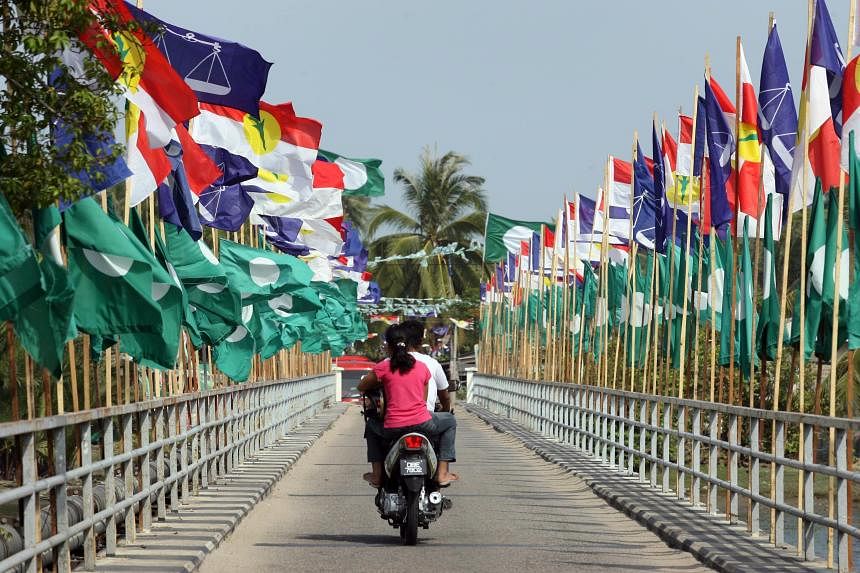KUALA LUMPUR – It has been more than a week since Malaysia’s Parliament was dissolved to pave the way for the country’s most bruising electoral battle in decades, but the mood remains muted.
The flag war, an often-used gauge when assessing the efficiency of the election machinery among competing parties, is almost non-existent in much of the capital and the rest of the country.
Nightly rallies at residential estates have yet to take hold, while party leaders, who typically make daily visits to wet markets, mosques and other places of worship after polls are announced, remain absent.
In the ethnic Malay-dominated Lembah Pantai constituency on the fringes of Kuala Lumpur, which has long been a hotly contested seat between Parti Keadilan Rakyat (PKR) and the ruling Umno, flags are nowhere to be seen.
A lone red banner of the PKR-led Pakatan Harapan coalition hangs at the busy intersection leading to this residential area that is dominated by high-rise, low-cost flats and single-storey wooden homes.
The scenes in Gombak district, another key election battleground north of the capital, and in the satellite city of Petaling Jaya are also devoid of any signs that elections would be held soon.
Party officials from both sides of the divide acknowledge that campaigning has been off to a slow start for much of the country, but political canvassing will shift into high gear by the middle of next week when most parties finalise their candidate selection.
The slow start is due to a multitude of factors, one of which is a degree of unpreparedness.
Apart from the Umno leadership that forced Datuk Seri Ismail Sabri Yaakob to dissolve Parliament on Oct 10, all other political parties were opposed to early polls because this would fall during the monsoon season that typically brings devastating flooding to much of the country.
Umno rivals have accused the party of pushing for early elections, which are not due until mid-2023, so that Umno and its allies in the Barisan Nasional coalition can benefit from a low voter turnout.
The logistical challenge facing the Election Commission (EC), which will supervise the polling, is also unprecedented.
Following the automatic registration of Malaysians reaching the age of 18 in the voter list, the number of eligible voters has jumped by more than 50 per cent to 21.2 million people compared with the previous election in May 2018.
The EC, which is expected to spend over RM1 billion (S$301 million) in the upcoming polls, must engage more manpower, prepare more ballot papers and set up more voting centres in Peninsular Malaysia and the east Malaysian states of Sabah and Sarawak.
Government sources said the EC has been forced to raise its orders for indelible ink, which was first used in the 2013 general election.
“Even the time frame between dissolution, nomination and voting is longer than in any election since the 1990s,” noted a senior operative in the inner circle of Umno president Ahmad Zahid Hamidi.
The time frame between the dissolution of Parliament – which came just days after the government tabled its budget for 2023 – and voting is being stretched out for nearly six weeks, compared with the maximum four-week time frame previously.
The EC announced this week that polls will be held on Nov 19, with the nomination of candidates for the 222-member Parliament on Nov 5, which allows for a 14-day campaigning period.
Three states – Perlis, Perak and Pahang – will also hold elections for their respective assemblies simultaneously with the parliamentary vote.

